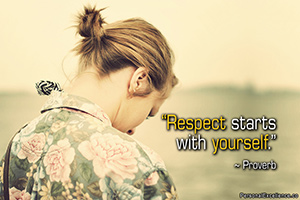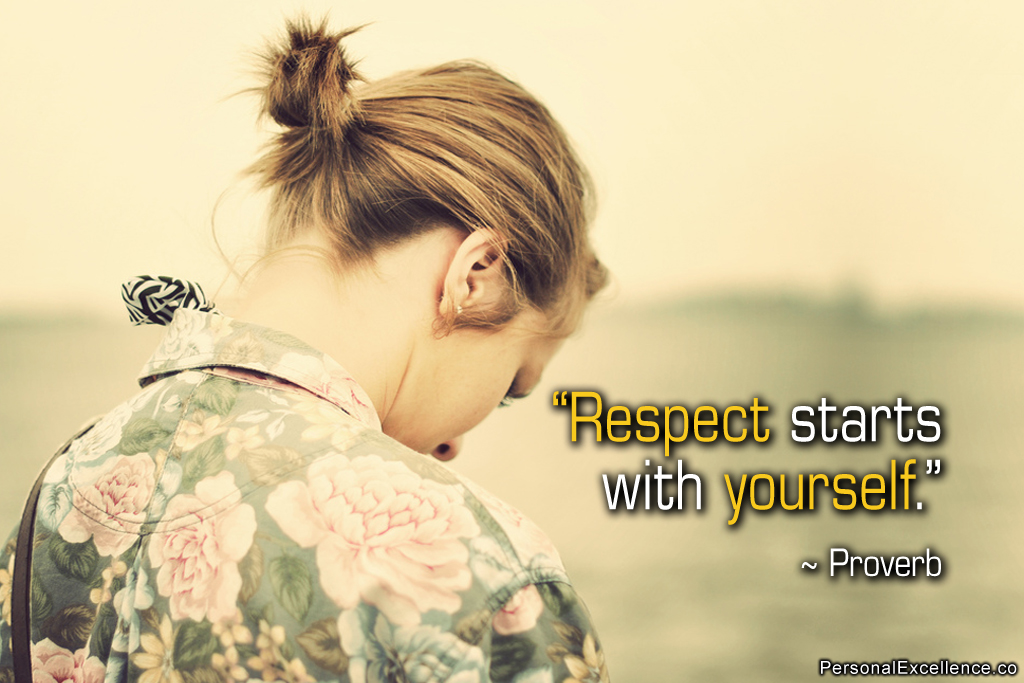This is a guest post by Cornelius Mota.
This is the last part of a 3-part series on how to tackle office politics and become a master of it.
- How To Manage Office Politics, Part 1: 5 Essential Tips To Getting Started
- How To Manage Office Politics, Part 2: How To Defend Yourself From Office Backstabbers
- How To Manage Office Politics, Part 3: How To Master the Game and Excel in Your Career

In the previous two parts of the “How To Manage Office Politics” series, we covered how to get ahead and how to self-defend successfully. However, playing the game successfully is the bare minimum needed in order to survive and meet the expectations in an organization.
If your goal is to get to the top, you must achieve the level of mastery. This is what this post is all about. Moreover, we’ll also explore how to do this, while staying true to your values.
1. Take a Long Term Perspective
Many people have a short term view on office politics. They consider the culture of the organization, the obvious political games going on and the predictable next moves, the latest trends supported by the organization’s leaders.
However, in order to become politically savvy, you need to stay ahead of the game. To LEAD the change.
The people who do well, quickly pick on the the latest changes in their organization and adapt effectively. They start to add value in the new context and they are successful.
If you want to excel though, this approach is too slow.
You need to anticipate trends:
- Take a long-term perspective!
- Try to understand where the economy, your industry, your organization is heading.
- How is your department going to evolve?
- Who will be the most powerful formal and informal influencers in the near and in the more distant future?
Of course, it is impossible to predict in detail what will happen. What I’m advocating above is a mindset. Don’t try to just stay on top of latest developments. Anticipate them, take the lead, be part of those who shape the future!
2. Build Sound Partnerships with the Key Influencers
The reality is that as brilliant as you are, there are other great people in the world and in your organization. There are lots of people who achieve impressive results, who have a vision and make amazing things happen. Yet, only a few get a place at the top.
Let me be blunt. If you don’t have the support of the right people in the organization, you will not succeed to get and/or stay at the top, no matter what.
Keeping the above in mind, here are a few elements to consider:
- Draw the power map of your organization. Both formal and informal.
- Think about the future, about possible shifts of power.
- Find natural ways to establish contact and make your accomplishments known to those in position of power.
- Be proactive and take on projects that ensure visibility and are important for the organization.
Yes, it’s like a chess game.
I don’t support using any manipulative trickery to get under the skin of important people. I do recognize though that if you are to succeed, you need their support. I say, go and work hard, make sure you ensure visibility for yourself and go the extra mile in order to impress the key influencers with the commitment you have towards the organization.
3. Become a Key Influencer Yourself
You need to become one of those people in the organization that occupy a top position on the power map. Remember that this is not (only) about formal power.
You can become a key influencer via leveraging the power of expertise, of enthusiasm, of integrity, of the favors bank you developed while helping others and via applying consistently your influencing skills.
Think about all the stakeholders in the projects you manage and in your career. Some of them are more important than others, but you need to be great at managing all of them.
Do your homework’s thoroughly. Get to know the people and find out what are the types of influencing strategies they best respond to, what is their favorite medium of communication, who are the people who can influence them the most and so on.
If you haven’t read yet “The Psychology of Influence” by Dr. Robert Cialdini, I highly recommend it. And also the negotiation books by Chester L. Karrass. I love this quote by him:
“In business, as in life, you don’t get what you deserve, you get what you negotiate.” — Chester L. Karrass
You don’t become a key influencer overnight. You need to work at it consistently and from a number of different angles, as mentioned above.
4. Become a Source of Enthusiasm and Positive Energy in Your Organization
We’ve already covered being great at what you do. But the point here is also about attitude:
- Be the ambassador of your product/job/department within the company.
- Be the one who displays enthusiasm, who is positive, who always finds a solution.
- Be the obvious “go to” member of the organization for what you do.
- Know everything about your company, about the products/services it delivers, about consumers, about the key executives.
5. Make Your Choices in Terms of Ethics
I’m going to be blunt here. As per my observations, there are two kinds of people who manage to get to the top.
All of them are people who are brilliant and bring value-added to the organization. There are some fundamental differences though:
- In the first category there are people who are manipulation experts, but have little limits in terms of bending the limits of ethics. They are true masters of politics and have an amazing ability to do very well in difficult situations. Their ability to play political games is both impressive and scary.
- The second category I’ve noticed is made of people that deliver massive value-added to the organizations, while displaying impeccable ethics. This combination is so powerful that it commands immense respect from people. Eventually, true value raises to to the top and such people are a living proof that you can succeed, while staying true to your values.
Truth be told, in reality the first category may outperform the latter in the short term. I personally believe that there are far more people in the first category. Especially if we factor in the time element, mastering political games can deliver results faster.
However, everything comes down to how we define “success”. Is it to become a CEO by 30 no matter what, stabbing people behind their backs, leaving character aside and doing whatever is needed to succeed?
Or is it to live a life, while staying true to your values? To succeed, while inspiring people to be better?
I can tell you that when I personally met people from the second category, they made such a strong impression on me. Their desire to excel and to help was so genuine, that respect and admiration were automatic.
But if you choose to raise to the top as a member of the second category, be prepared to pay the price! You will need to make some tough choices at times. You may advance slower or you may even need to leave an organization.
There is also a strong watch out I would like to share here.
Most people start their career with good intentions. Very few say: “OK, I will step on everything that gets in my way and I will get at the top.”
But as years go by and especially as many of dreams lay broken on the floor, there may be a temptation to deviate “just a little bit” from the good path sometimes.
I read the biography of Jordan Belfort, also known as “The Wolf of Wall Street“. In brief, he created from scratch a company hiring over 1,000 traders on Wall Street in the ’80s, made millions, had everything and then started to get into shady business practices, lost everything and went to jail. There is a happy ending though, i.e. he is now a motivational speaker and trainer, helping people avoid his mistakes and succeed ethically.
The point I wanted to share from his amazing story is that he got to do the shady stuff that got him into trouble, via taking little steps. You don’t usually wake up one day and say “OK, forget ethics. I’m a bad guy now, I’ll step over people, I’ll break the law and do whatever is needed to succeed”.
However, what often happens is that you may allow yourself to take just a little step off the right path. And then another small one, and another, and another. Because each step is so small, it seems that it’s perfectly acceptable. However, in time, you may get lost in darkness, without even realizing what you are doing.
Watch out for the small steps trap! You will get carried away before you know it.
On a side note, the story of Jordan’s life will be featured in a movie directed by Martin Scorsese, starring Leonardo DiCaprio. It will be released later this year in 2013.
To conclude, I firmly believe that it is possible to succeed without compromising your values. I’ve seen plenty of great people who did it and they are an inspiration to me and to all the ones who are lucky to be around them. You need to take a long term view, deliver massive value-added to your organization, become a master of influencing and get the support of the other leaders in your organization. Most importantly, be vigilant to avoid the small steps trap and always stay true to your values.
For those of you with Live a Better Life in 30 Days, read Day 15: Identify Your Values to get started on identifying your values and following true to them.
About the Author: Cornelius is a life balance author and blogger. He worked in Fortune 100 companies such as P&G and Unilever and has over 10 years of business experience. Visit his blog Poise Catalyst.
This is the last part of a 3-part series on how to tackle office politics and become a master of it.
- How To Manage Office Politics, Part 1: 5 Essential Tips To Getting Started
- How To Manage Office Politics, Part 2: How To Defend Yourself From Office Backstabbers
- How To Manage Office Politics, Part 3: How To Master the Game and Excel in Your Career
(Image: betsyweber)









 Thanks for reading. If you like my free articles, join my private email list and get my latest updates and articles sent right to your inbox.
Thanks for reading. If you like my free articles, join my private email list and get my latest updates and articles sent right to your inbox.